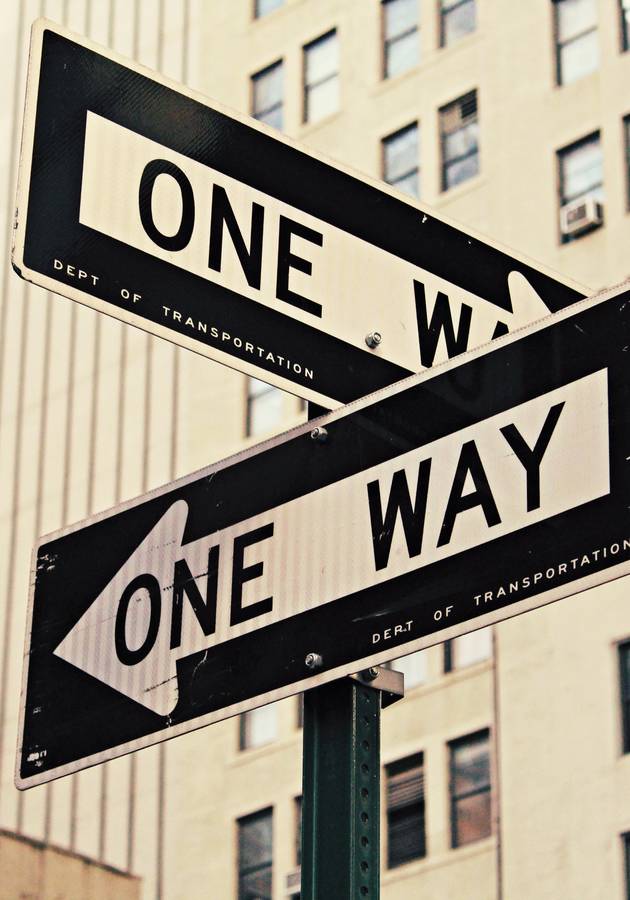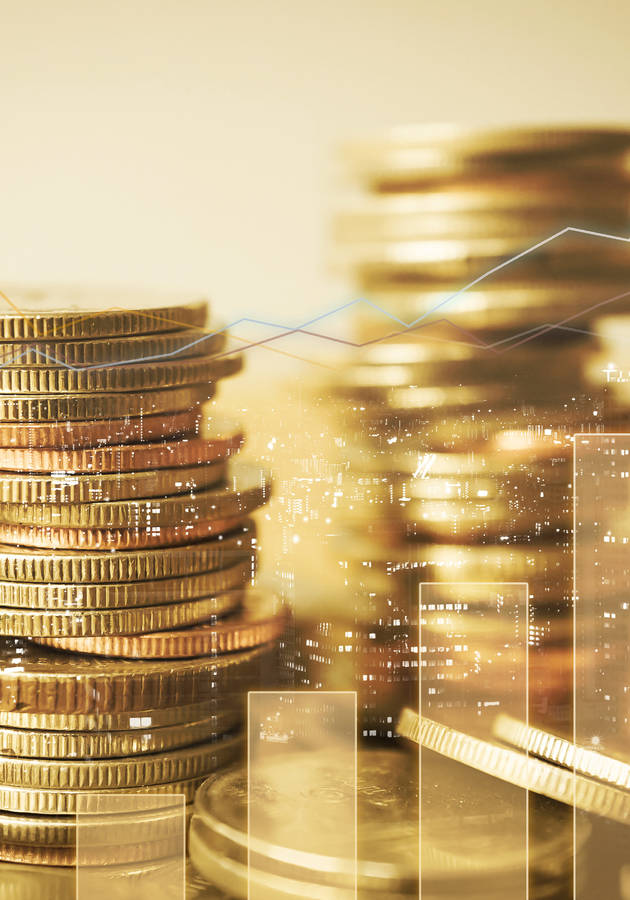The title says it all: Ha-Joon Chang’s “23 Things They Don’t Tell You About Capitalism” attacks orthodox economic thought on 23 different fronts, and presents an entirely different image of how capitalism actually works.
So, get ready to see how the prevalent economic system of today operates in reality – as opposed to how free-market economists and politicians say it does in theory!
1. There is no such thing as a free market
Though free-market economists often say that we need to defend the free market from politically motivated government interference, in truth, there has never been – nor ever will be – such a thing as a free market. “Every market,” writes Chang, “has some rules and boundaries that restrict freedom of choice.” Consequently, make no mistake: the people who claim that governments shouldn’t disturb the free market are usually just as politically driven as the rest. They just pretend that their views are an objective economic truth, when, in fact, they are not.
2. Companies should not be run in the interest of their owners
Shareholders own companies and take the risk of owning them. While employees have fixed wages and suppliers are paid specific prices, the incomes of shareholders vary according to the company’s performance. If the company goes under, they are the only ones that will get nothing. Therefore, it’s best to run the company in their interest. However, in reality, shareholders couldn’t care less about the long-term future of a company. Instead, they are more interested in short-term profits, even at the cost of long-term investments. Run a company for the shareholders, and you will end up reducing its long-term growth potential. Even Jack Welch confessed this recently, calling it “the dumbest idea in the world.”
3. Most people in rich countries are paid more than they should be
A Swede gets paid about 50 times more than an Indian for the same job. Defenders of capitalism see no problem in this, deeming it a reflection of their relative productivity. And yet, some of them see no problem in immigration control as well. However, there is an obvious problem, since, in the absence of this kind of regulation, most workers in rich countries would probably be replaced by workers from poor countries. So, the poor are not poor because of their skills, but due to the differing political histories of the different countries of the world. In other words, we are not paid according to our individual worth – and, yes, people in rich countries are paid more than they should be.
4. The washing machine has changed the world more than the internet has
We tend to regard as most revolutionary the most recent inventions. However, in relative terms – and at least for now – the washing machine and other household appliances are far more important than the internet, because they allowed women to enter the labor market and “practically abolished professions like domestic services.”
5. Assume the worst about people and you get the worst
According to Adam Smith and classical economists, people are rational and selfish – and it is this energy that the market harnesses to produce social harmony. Numerous behavioral studies have demonstrated that this is not true: people can also be irrational, noble, and altruistic. That’s why, according to Chang, “we need to design an economic system that, while acknowledging that people are often selfish, exploits other human motives to the full and gets the best out of people.”
6. Greater macroeconomic stability has not made the world economy more stable
Because of people’s irrationality, crises are inherent to free-market capitalism, as are inflation and instability. Although hearing from time to time that we’ve overcome them, in reality, this will probably never happen: as the 2008 financial crisis proved yet again, killing inflation and instituting macroeconomic stability don’t lead to stable economies, no matter how logical the connection might sound.
7. Free-market policies rarely make poor countries rich
According to most liberal economists, all of today’s rich countries have become rich through free-market policies. However, the truth is the opposite. As Chang writes, “with only a few exceptions, all of today’s rich countries, including Britain and the United States – the supposed homes of free trade and the free market – have become rich through the combinations of protectionism, subsidies and other policies that today they advise the developing countries not to adopt.” Moreover, even developing countries had superior results and far fewer financial crises before adapting market-oriented economies. In other words, free-trade, free-market policies rarely – if ever – worked.
8. Capital has a nationality
Even though globalization did indeed inaugurate the birth of transnational corporations, most of these corporations are actually national companies with international operations. This should be taken into account when devising policies: some companies use the cloak of transnationality to benefit from other countries while essentially contributing little to their wealth.
9. We do not live in a post-industrial age
The industry is still important – and this is especially true for developing countries. Even though some Western economists say that they can skip the process of industrialization altogether, in reality, service-based economies have a lower ability to export. This inevitably leads to lower export earnings and, thus, slower growth. In other words, the poorer and the newer the country is, deindustrialization has more negative long-term consequences.
10. The U.S. does not have the highest living standard in the world
Even though the average US citizen has “greater command over goods and services than his counterpart in any other country in the world except Luxemburg,” there are very few developed countries in the world that are as unequal as the United States. So, the average is misleading. Moreover, Americans work considerably longer than Europeans, and, “per hour worked, their command over goods and services is smaller than that of several European countries.” Some might prefer such a lifestyle (“more material goods with less leisure time”), but the fact remains that the U.S. does not have the highest living standard in the world by any measure.
11. Africa is not destined for underdevelopment
True, Africa is ethnically divided, has lousy geography and poor climate – but so do most rich countries of the world. The reason why Africa stagnates in the last three decades is the free market: during the 1960s and the 1970s, when several African countries were communist, they posted “a decent growth performance.” It wasn’t because of the different political systems – but because they tried to buy and develop “the necessary technologies, institutions and organizational skills to deal with their adverse consequences.” The free market, on its own, won’t solve this overnight. Or ever.
12. Governments can pick winners
Contrary to popular opinion, government decision-makers are capable of picking winning ideas. Even a quick analysis shows that governments have picked winners with pretty much similar regularity as the market itself. There are some spectacular failures as well, but this is true for the market as well. One can even argue that governments are in advantage because they can sometimes pick winners against market signals. After all, they have more time at their luxury and can risk putting the interests of future generations before a short-term turnaround to keep things afloat.
13. Making rich people richer doesn’t make the rest of us richer
Trickle-down economics is one of the greatest capitalistic myths. It goes something like this: the richer the rich get, the more investments they will make, and more jobs will be created. So, government policies that force them to distribute the wealth, in the long run, work against the interests of those who should profit from these policies. In reality, even some of the originators of the phrase “trickle-down economics” have come forward with an admission that it was a marketing ruse. Pro-rich policies have failed to accelerate growth over and over again. And though trickle-down economics does happen (the wealthier the wealthy are, the poorer do get something more), its impact is negligible and barely existent if left solely to the market.
14. U.S. managers are overpriced
American CEOs today earn about ten times more than their predecessors of the 1960s and about 20 times more than European or Asian CEOs. Moreover, they are overprotected as well, as they rarely get punished for poor performance. Contrary to what they would have you to believe, this is not because of market forces, but because of their political power. It’s a vicious cycle: they win more because they are in control of the rules of the game.
15. People in poor countries are more entrepreneurial than people in rich countries
Poor countries are not poor because of their lack of entrepreneurs: in fact, most poor people have no choice but to be entrepreneurs just to survive, so you’ll see even African children shining shoes or hawking hats. Their countries, however, remain poor despite booming entrepreneurial activity because that is not enough for economic growth. Productive technologies and developed social organizations are prerogatives – but, at least the latter, the free market will never churn them out.
16. We are not smart enough to leave things to the market
Humans possess, at best, something called “bounded rationality.” In other words, we are not that great at making rational decisions, especially when faced with too many choices. So, not only it’s not bad, but it’s necessary for governments to restrict our freedom of choice in some areas, including the world of finances. Just like cars with poor safety standards shouldn’t be sold, Ponzi schemes shouldn’t be allowed to happen as well.
17. More education in itself is not going to make a country richer
Unfortunately, there is not much evidence that more education leads to greater national prosperity. But that shouldn’t surprise anybody: much of the knowledge we gain in our schools is actually “not relevant for productivity enhancement.”
18. What is good for General Motors is not necessarily good for the United States
Firms mustn’t be allowed the maximum degree of freedom because people operate them and are bound to make mistakes. Unfortunately, some of these will be bad not only for the company but for the national economy as well. Some regulations may seem harsh in the present – but they work in the long run.
19. Despite the fall of communism, we are still living in planned economies
Maybe not to the extent as the economy of the USSR, but all capitalist economies are planned. They must be: otherwise, they’d probably collapse. Therefore, the question has never been if an economy should be planned or not, but which things should be planned – and at which levels.
20. Equality of opportunity may not be fair
Equal opportunity to all is a good idea – but it doesn’t tell the whole story. A hungry child raised by a poor family can’t be blamed for performing badly at school. Chang makes the analogy even clearer: “Unless there is some equality of outcome (i.e., the incomes of all the parents are above a certain minimum threshold, allowing their children not to go hungry), equal opportunities (i.e., free schooling) are not truly meaningful.”
21. Big government makes people more open to change
Big governments neither hinder economic growth nor make people less mobile. Sweden, Norway, and Finland are the biggest welfare states in the world, and yet their inhabitants are more open to changes than Americans, and their economic growth is often bigger than that of the United States.
22. Financial markets need to become less, not more, efficient
Financial markets work just too good for the economy to be stable. No sector generates short-term profits as fast as the financial one. “The speed gap between the financial sector and the real sector needs to be reduced,” warns Chang counterintuitively, “which means that the financial market needs to be deliberately made less efficient.”
23. Good economic policy does not require good economists
During their "miracle" years, economic policies in Japan and Korea were run by lawyers, and by engineers in Taiwan and China. Free-market economists have fared a lot worse during the last three decades. In other words, “good economists are not required to run good economic policies.” And “insofar as we need economics, we need different kinds of economics from free-market economics.”
Final Notes
“23 Things They Don’t Tell You About Capitalism” is amusingly written, coherently, clearly presented, and, at its best, revelatory and even eye-opening.
Invaluable for everyone who wants to understand how capitalism actually operates.
12min Tip
Free-market capitalism isn’t an economic system: it’s just a legalized version of the laws of the jungle. However, at least until now, we haven’t discovered a better form of economic organization than managed capitalism. So, what we should discuss is not whether capitalism should be regulated or not – but how much regulated it should be.





























